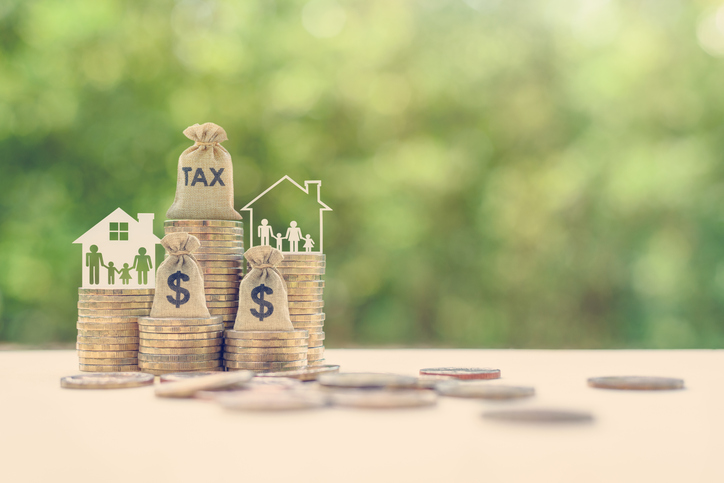Florida Couple Hit with Reassessment After “Substantial Improvements”
 Imagine spending a significant amount of time and money on renovating a home, only to find that the property taxes have not only doubled, not only tripled, but multiplied six times over. Although this may sound like a real estate horror tale, Florida residents Walter and Debbie have experienced this firsthand. The couple’s dream waterfront home needed renovation, so they did what commonsense homeowners do and renovate. Although the couple knew that their property taxes would likely increase, it’s safe to say that an annual tax bill of $91,000 wasn’t on their bingo card.
Imagine spending a significant amount of time and money on renovating a home, only to find that the property taxes have not only doubled, not only tripled, but multiplied six times over. Although this may sound like a real estate horror tale, Florida residents Walter and Debbie have experienced this firsthand. The couple’s dream waterfront home needed renovation, so they did what commonsense homeowners do and renovate. Although the couple knew that their property taxes would likely increase, it’s safe to say that an annual tax bill of $91,000 wasn’t on their bingo card.
Homeowners may feel frustrated knowing that investing in a home can come at a steep cost in the form of property taxes. Here’s what happened to Walter and Debbie and how improvements can affect property assessments in New Jersey.
Florida Reassessments
Florida is known for having significant protections for primary residences, also known as homestead protections. The Save our Homes cap, which limits increases in assessed value on primary residences to 3% or the consumer price index (whichever is lower) ensures that homeowners are not hit with major increases year over year. However, substantial improvements can trigger reassessments of property.
Unfortunately, Walter and Debbie experienced the latter. They thought if they kept the foundation and outer walls of their home, their homestead protection would stay in place. But the township determined that the property was essentially a brand-new house. As a result, the homestead protection was gone, and they got hit with a haymaker of an increase.
Walter and Debbie tried appealing with documentation and evidence, but to no avail. The final assessment, which was based on recent sales of homes in the area rather than the cost to build theirs, was affirmed.
Show Me the Money
Part of Walter and Debbie’s challenge came from a rise in all cash offers to buy property in their neighborhood. 37% of homes were bought with cash when the couple first purchased their home in 2002. Thirteen years later, that increased to 62%. But why the sudden increase? It turns out that many participating in this red-hot real estate market can afford to pay all cash. Buyers in such transactions can pay above asking price to win in multi-bid scenarios. These sales, though not necessarily indicative of fair market value, are still used when assessing properties in Florida. A rise in all cash purchases of property can spell trouble for homeowners because it may lead to inflated property values and affect the property taxes of surrounding homes.
Added Assessments in New Jersey
Like municipalities in Florida, New Jersey municipalities have a procedure for assessing properties that have been substantially improved. These are called “added assessments” and are triggered when properties are improved with additions, new structures or renovations after October 1. Added assessments are based on the difference between the value before and after improvement. In these cases, the added value is applied the first day of the month following the completion of the improvement. Once a property owner receives an added assessment, it becomes prorated for the remaining months of the tax year.
Added assessments ensure that homeowners do not avoid paying their fair share of property taxes if they complete improvements after the October 1 assessment deadline. Although the process differs from Florida’s, these assessments can result in substantial increases that property owners may not be prepared for. Such increases may not be sustainable for many property owners.
Reducing the Risk of Added Assessments
So, does this mean the only way to avoid large added assessments is to simply not do anything? Of course not! Certain cosmetic upgrades, like painting, flooring, or adding new appliances, are less likely to trigger assessment increases. The same goes for outdoor work such as landscaping and fencing that is not extensive. Also, roof repairs and HVAC upgrades are more akin to property maintenance rather than improvement. Fun fact: homeowners installing solar panels may receive a limited exemption! NJ Division of Taxation – Local Property Tax.
Tax assessors look for certain signs when scoping out properties for added assessments. Permits usually raise a red flag. If a home project requires a permit, the tax assessor will be sure to take note. Also, improvements that increase square footage, including adding another floor or finishing a basement, are also likely to raise an assessment. Luxury additions like pools and outdoor kitchens can also lead to increased property taxes.
While there is no guarantee that property owners won’t receive an added assessment, they can consider the above factors to minimize the risk of an increase.
To read the full article of Walter and Debbie’s property tax increase, click here.







